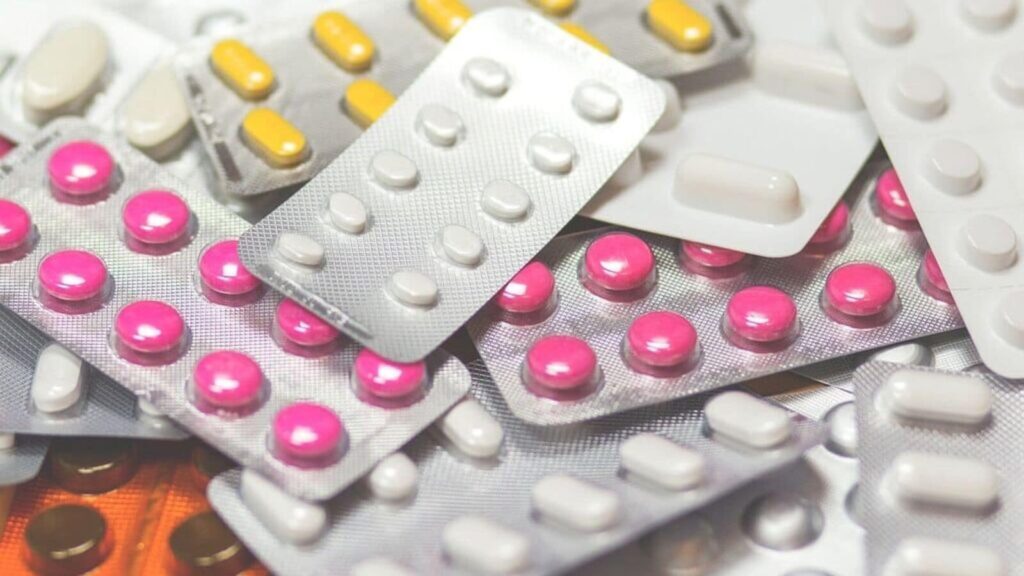No matter how high the inflation is, their demand is inelastic. No matter how slow the current profit growth is, these companies spend on R&D for future growth.
No matter how stiff the competition is, their patents protect them. No matter how weak the economy is, these companies continue to receive government support.
Pharma companies truly deserve to be called ‘defensive stocks’ for these reasons and more.
Going by the same logic, pharma stocks should be resilient and consistent in delivering gains year after year.

View Full Image
However, among large Indian pharma stocks, barely any managed to fetch returns significantly higher than bank deposits on an annual basis, over the past decade.
This is certainly not a comparison of the safety of pharma stocks versus bank deposits. The latter is an asset class that offers both surety of capital and surety of returns.
Pharma stocks, on the other hand, are supposed to be resilient across market cycles, fetching reasonable risk-adjusted returns.
But thanks to regulatory bottlenecks, constant government interventions, risk of price wars against generic versions and low success in R&D, the companies often fail to fetch optimum valuations over many years.
Nevertheless, in a world with a growing aged population, the pharma sector remains one that cannot be ignored by governments and investors.
In fact, here are few reasons why a handful of carefully selected pharma stocks must stay in your watchlist…
Supply Chain Resilience
Covid-19 laid bare the shortcomings of globalisation by disrupting the flow of vaccines to certain geographies. This caused economies like the US and the EU to localise pharmaceutical production to enhance supply chain control.
Meanwhile, companies are also exploring near-shoring options (production in nearby locations) in eastern and southeastern Europe, seeking the twin benefits of cost advantage and a higher degree of control on the supply chain.
Self-Reliance for Raw Materials
Approximately 72% of overall bulk drugs (raw material called API) required by the pharma sector are currently imported from China.
Back in 2022, the share of India’s imports of bulk drugs was 66%. However, since Chinese bulk drugs are priced almost 50-60% lower than Indian products, the Chinese API have flooded Indian markets.
The government’s recent PLI schemes, however, have focussed on self-reliance in bulk drug production. They have offered incentives to produce biologics, biosimilars, and cell and gene therapies instead of simply using them to manufacture generic drugs.
Success of Clinical Trials
Pharmaceutical companies have historically outsourced manufacturing to Indian producers due to capacity constraints or uncertainty of clinical trials.
However, with improved drug development and R&D capabilities provided by the Indian firms, outsourcing now covers more of the value chain, from research to clinical trials.
Thus, Indian contract manufacturing and research firms are increasingly focusing on higher-value, innovative products.
Digitalisation has further reduced the potential for human error in R&D and manufacturing. So, there is improved quality with higher machine uptime and efficiency.
Lower Risk of USFDA Penalties
Global quality standards are becoming stricter, with regulatory bodies like USFDA imposing harsher penalties for non-compliance. One example is the USFDA’s move to impose civil penalties for incomplete clinical trial data.
India has made significant strides in meeting international quality standards, with its share of USFDA inspections declining from 19% in 2013 to 9% in 2024 (though still above the global average of 4%).
Finally, there is the trend that we are most bullish about.
Shift from Chemical-Based Drugs to Biologics and Biosimilars
The global pharmaceutical industry is facing a shift from chemical-based drugs to biologics and biosimilars.
While small molecule therapeutics had previously dominated research and captured major market share, the advent of large molecule therapeutics (biologics and biosimilars) has rapidly transformed the pharmaceutical industry.
Given their targeted mechanism of action and reduced toxicity, biologics have gained major market share in terms of both revenue and total market.
Now, it is the contract research and manufacturing of biologics that holds the secret to big returns in Indian pharma.
Biologics takes on an average, 18 years of research with a very low success ratio (1 in 10,000). If commercialised and successfully launched, the rewards are huge. These companies typically enjoy years of exclusivity. That means no competition and good pricing power for the approved drug.
But this process is time consuming, costly, and has no guarantee of success. Eventually, the innovator pharma companies (Big Pharma) start looking at alternatives.
Rather than go through the whole 18-year cycle, they partner with Indian contract researchers in biologics.
But due to the critical nature of the work, entry barriers are huge. The outsourcing candidates need quality research infrastructure and scientists at par with their clients.
As a result, despite the huge research outsourcing opportunity, there have been very few players who are able to capitalise on it.
Syngene International (a subsidiary of Biocon) is one of the leading contract research organisations (CROs) in India.
The company is an integrated service provider offering end-to-end drug discovery, development, and manufacturing services on a single platform (CRAMS). It holds over 400 patents jointly with clients and has 6,000 scientists.
Despite the relative uncertain nature of the contract research business, the company has grown profits at a compounded rate of 13% over the last five years.
The stock’s returns over the past decade were 17.8% per annum, significantly above the
returns on bank deposits and higher than most of its peers.
So, pharma stocks, in general, may not be the best bets for the long term. The limited revenue visibility could often keep their returns tied to that of other low-risk assets like bank deposits for years.
However, certain niche and monopolistic businesses in the sector, like Syngene, certainly deserve a place in your watchlist.
Happy Investing.
Disclaimer: This article is for information purposes only. It is not a stock recommendation and should not be treated as such.
This article is syndicated from Equitymaster.com
Source:https://www.livemint.com/market/stock-market-news/trump-targets-indian-pharma-but-this-company-is-immune-11747206140358.html

